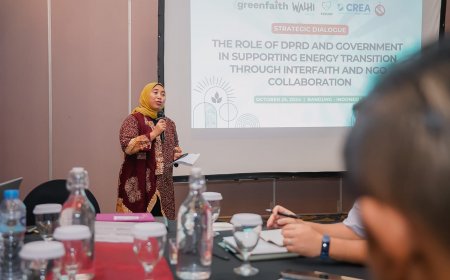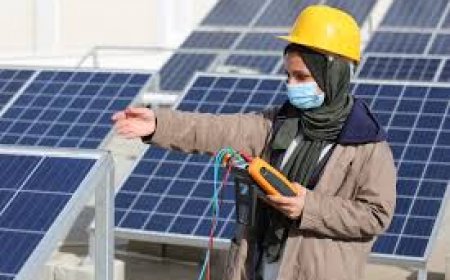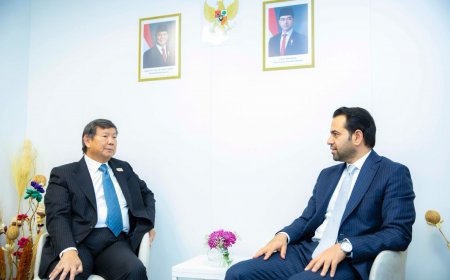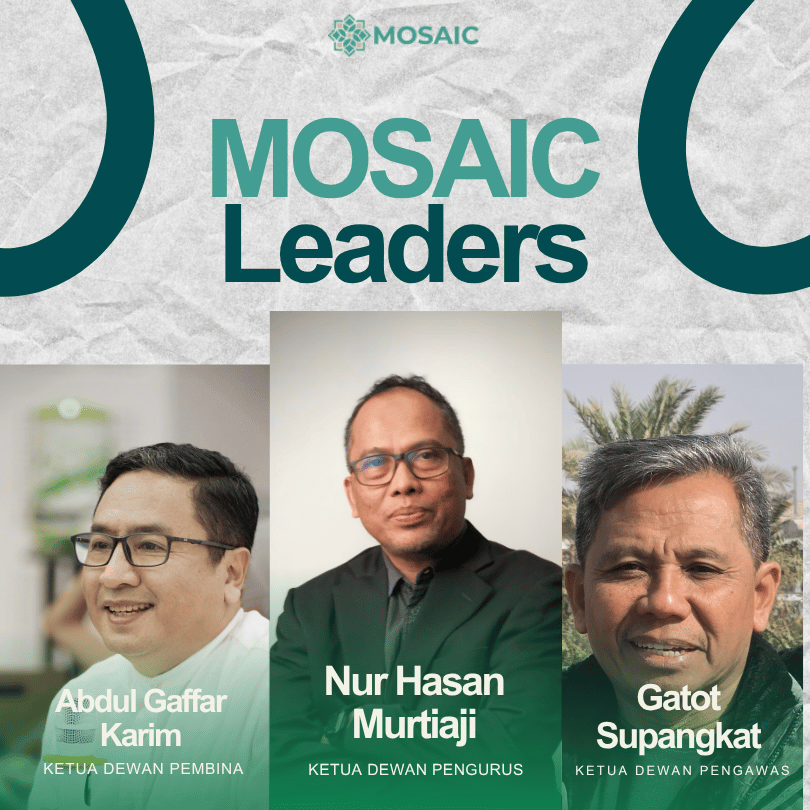Central Aceh potential to become green waqf development model
Roadshow this time focused on eco-theology campaigns and forest waqf workshops.
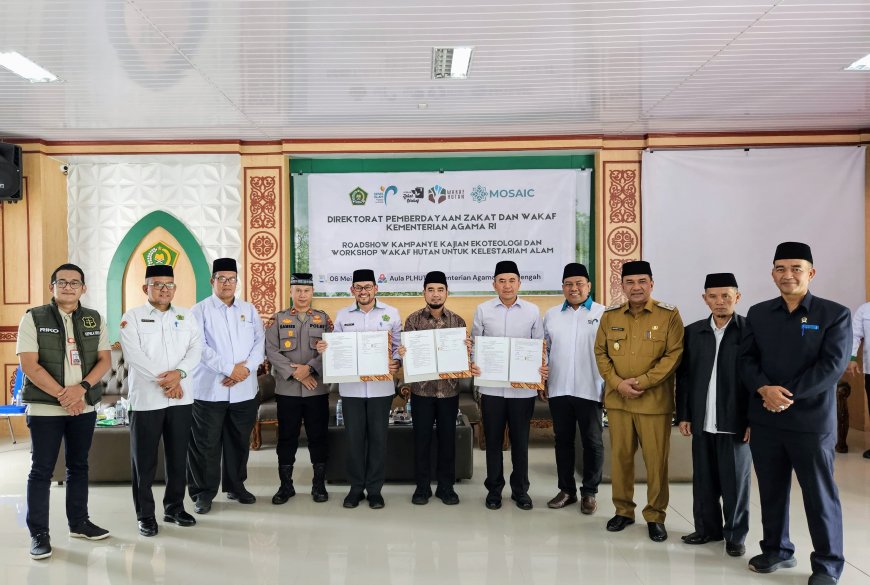
MOSAIC-INDONESIA.COM, TAKENGON — Muslims for Shared Actions on Climate Impact (MOSAIC) in colaboration with the Directorate of Zakat and Waqf Empowerment Ministry of Religious Affairs Republic of Indonesia (Dirzawa Kemenag RI) held the Waqf Forest Roadshow. This event was held in Takengon, Central Aceh, Aceh Province, Tuesday (6/5/2025).
The activity which took place at the Central Aceh Ministry's PLHUT Hall, Paya Ilang, Takengon is a continuation of the previous roadshow that has been running during Ramadan 1446 H/2025 in four waqaf cities: Wajo (South Sulawesi), Gunungkidul (Yogyakarta), Tasikmalaya (West Java), and Padang (West Sumatra).
This roadshow focused on eco-theology campaigns and forest waqf workshops, as a form of education and reinforcement of productive waqf literacy for environmental preservation. The event presented various important figures from across institutions, including the founder of the Bogor Waqf Forest Foundation, Dr. Khalifah Muhammad Ali, and the representative of the Waqf Forest Conservation Initiative (IKHW), Firman Hadi, as speakers.
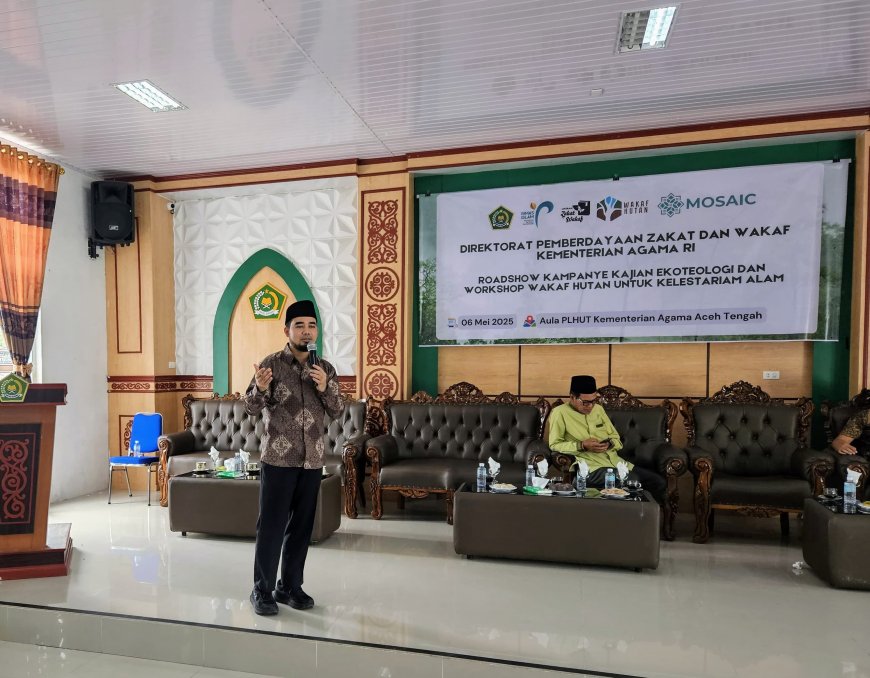
Among the goverments authoritiess are Deputy Regent of Central Aceh Muchis Hasan, MSP, Kakanwil Kemenag Aceh Drs. H. Azhari, M.Si, Head of Subdit for Institutional Building and Zakat Cooperation and Waqf of the Ministry of Religious Affair Muhibbudin, S.Fil.I, ME, Forkopimda element, Rector IAIN Takengon Prof. Dr. Ridwan Nurdin, MA, Kakao Kankemenag Aceh H. Wahdi, MS, MA, as well as the Heads of Sections and Organizers of the Ministry.
Around a hundred participants, such as the Head of the District KUA as PPAIW, Islamic religious extension, district waqf operator, representative of BWI Aceh Tengah, Baitul Mal Aceh Tengah, to a number of village nazhir, were actively involved
The roadshow aims to raise public awareness of the potential waqf as an environmental preservation solution through an ecotheology approach, such as synergy between religious values and ecological responsibility.
Dr. Khalifah Muhammad Ali, in his presentation, explained that waqf forests are a productive form of waqf that utilize waqf land for environmental preservation and community empowerment.“The Waqf known so far was only 3M: mosques, makam (tombs), and madrasahs. In fact, a well-managed waqf forest can have an ecological impact and at the same time empower the surrounding communities — most of whom still live in poverty, including about 18.46 million people in the surrounding forest area,”Khalifah said.
He said that the land of the waqf should not be sold, inherited, or gifted, and its designation should not be altered. “If a land has been pledged as a waqf forest, it must forever be maintained and managed as a forest,” he added.
Regarding the local context, Khalifah highlighted that Aceh has a special position in the development of waqf in Indonesia. “Aceh is a pioneer in the Waqf Forest movement. Even before this roadshow was held, the province had already stepped in with the 4.7 hectares of Waqf Jantho Forest,” he said. In this event, the Waqf Forest manager Jantho was also present as a source to share first-hand experience in waqf-based forest management.
Khalifah said that Central Aceh has tremendous potential to become a model for sustainable waqf forest. “In addition to the identification of several sites of waqf land that are ready for development, this area is endowed with extraordinary natural wealth. The cool air, beautiful mountain landscape, as well as the presence of Lake Laut Tawar make Central Aceh very potential for the development of waqf-based ecotourism. Moreover, Central Aceh is also known as a producer of Gayo coffee—one of the best coffees in the world. This combination of ecological, economic and tourist potential is what makes Central Aceh ideal as a sustainable waqaf forest model,” he explained.
MOSAIC Chairman Nur Hasan Murtiaji added that the Waqf Forest campaign is part of support for the eco-theology program initiated by the Indonesian Minister of Religious Affairs. He said that, there have been eight waqaf forest spots in Indonesia—four were the result of the roadshow and four others had existed before, namely in Aceh, Bogor, Gunung Sindur, and Mojokerto.
“With the concept of waqf forest, ecological preservation has an economic impact as well as a contribution to the education of the people. It is a form of worship that not only brings oneself closer to God, but also saves the earth,” he said.
According to Hasan, the Waqf Forest is not simply a concept, but rather a *synergistic movement* between Islamic philanthropic values and environmental responsibility. In Islamic teachings, the waqf is an eternal instrument for the welfare of the people. The Prophet (peace and blessings of Allaah be upon him) said:
“If a person dies, his charity is cut off except for three things: alms of jariyah, useful knowledge, or a pious child who prays for him.” (MR. Muslims).
The Waqf Forest is a manifestation of this “alms of jariya"—an apparent step in keeping the earth as God's trust. Amid the threat of deforestation, climate crisis, and loss of biodiversity, this initiative becomes an innovative solution that combines nature conservation with socio-economic empowerment of communities.
“However, the challenges are not small. From regulation, sustainable management, to community participation requires multidisciplinary collaboration,” he said.

